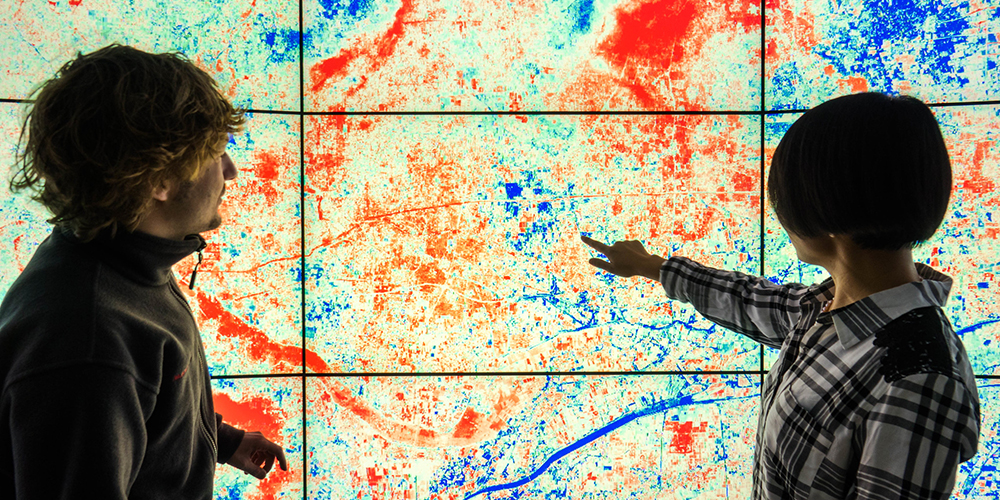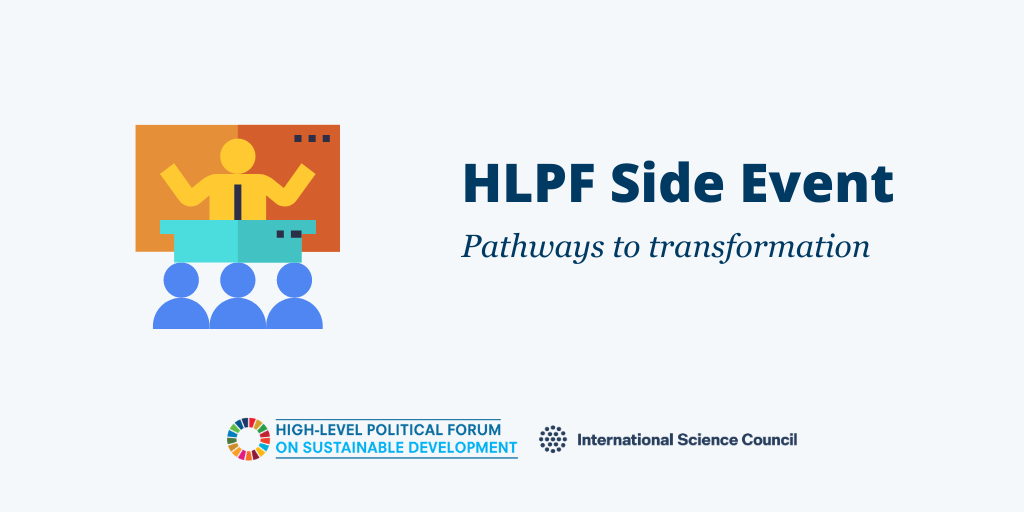
An international group of distinguished business, government, and science leaders say we cannot achieve a climate-safe, sustainable, and equitable world without ensuring a secure, safe, and trusted internet for all. The statement, which has been endorsed by the International Science Council, was launched to coincide with the UN High-level Political Forum, which will assess progress towards the Sustainable Development Goals (SDGs).
“The broader international science community is just beginning to explore the powerful opportunities and profound challenges of the digital age, both for science and for society. At the ISC we have adopted this as one of our four key domains of action. The Montreal Statement on Sustainability in the Digital Age outlines important areas of work that need to be pursued through the closer engagement of science with partners from policy and wider publics.”
Heide Hackmann, Chief Executive Officer, International Science Council (ISC)
The SDGs set out a transformative agenda that aims to simultaneously end poverty, address environmental decline, and reduce inequalities, all by 2030. But it missed setting a goal for governing perhaps the most powerful force defining humanity’s future: the digital age.
Signatories of the Montreal Statement on Sustainability in the Digital Age argue that tackling the climate crisis and achieving broader sustainability goals is indivisible from creating a secure, equitable, and trusted digital world; these are all one interconnected agenda. And they outline five near-term, cross-cutting actions that can enable rapid and widespread societal transformations to a low-carbon, secure and equitable future. This lays the foundation for what could define a much-needed action agenda for a new SDG on governing the digital world in support of people and planet.
Developed with the support of leading research and philanthropy organizations from four countries – Canada, the UK, France, and the USA – the statement unites voices of digital and sustainability experts working at the intersection of technology, sustainability and policy. It was released as the UN’s High-level Political Forum prepares to meet virtually from 7 – 16 July 2020 to launch a Decade of Action toward the 17 SDGs and assess the impact of the Covid-19 pandemic.
The statement calls for:
The statement was conceived and initially formulated at a September 2019 workshop in Montreal, Canada, one of a series on AI & Society, funded by CIFAR in partnership with UK Research and Innovation (UKRI) and France’s Centre National de la Recherche Scientifique (CNRS), organized by Future Earth, the UK Office for AI, the International Observatory on the Societal Impacts of Artificial Intelligence and Digital Technologies (OBVIA), and CNRS.
The need for global cooperation in the digital realm was similarly underlined recently by the UN Secretary-General. In June, António Guterres released a roadmap for filling the digital governance gap, creating a foundation to effectively leverage digital tools to achieve broad sustainability goals, including climate change mitigation.
In parallel, the Montreal Statement is part of a new international initiative –Sustainability in the Digital Age – which seeks to support and strengthen the growing diversity of actors engaging with the interconnected digital and sustainability agendas.
The statement has been endorsed by the International Science Council, and by a number of innovators, researchers, and decision makers working at the interface of digital and environmental sustainability, committed to collaborating to drive change.
You can endorse the statement here.
A virtual event on Digital Solutions to Reach the 2030-Agenda will take place in the context of the High-Level Political Forum on Sustainable Development 2020: Collaborative Action for Digital Solutions to Reach the 2030-Agenda – From Gaps to Opportunities. It is hosted by the German Environment Agency (UBA), UNDP, UNEP, Future Earth and the International Science Council (ISC). The meeting will take place 09 July 2020, 8:00-9:00 (EDT) / 14:00-15:00 (CEST). Find out more here.

Designing and implementing integrated, context-sensitive and attainable pathways towards achieving transformation: Side event for the 2020 High-Level Political Forum

Position paper for 2020 HLPF: Accelerated action and transformative pathways Read the key messages and download the full paper
Photo: IBM research via Flickr.